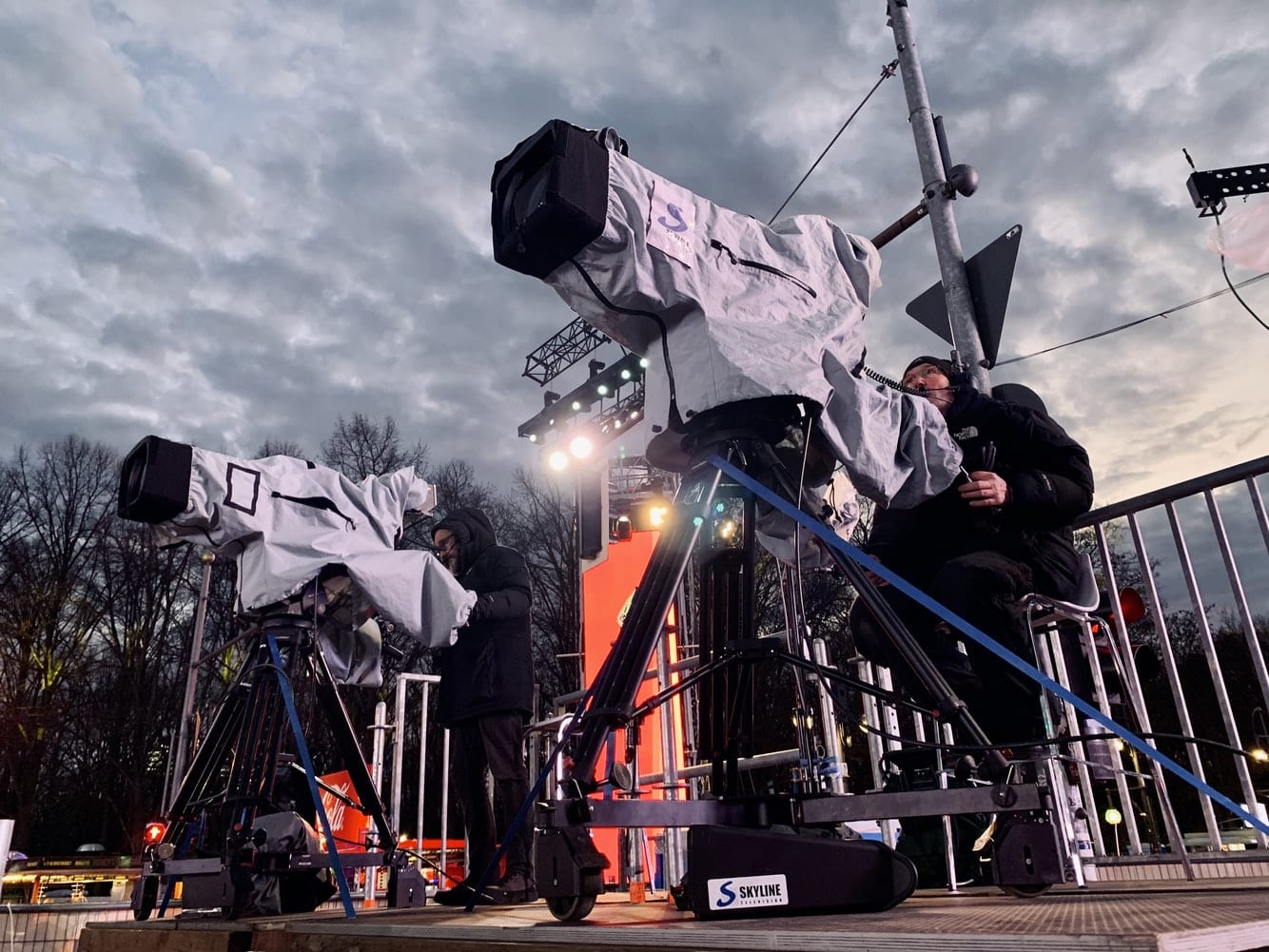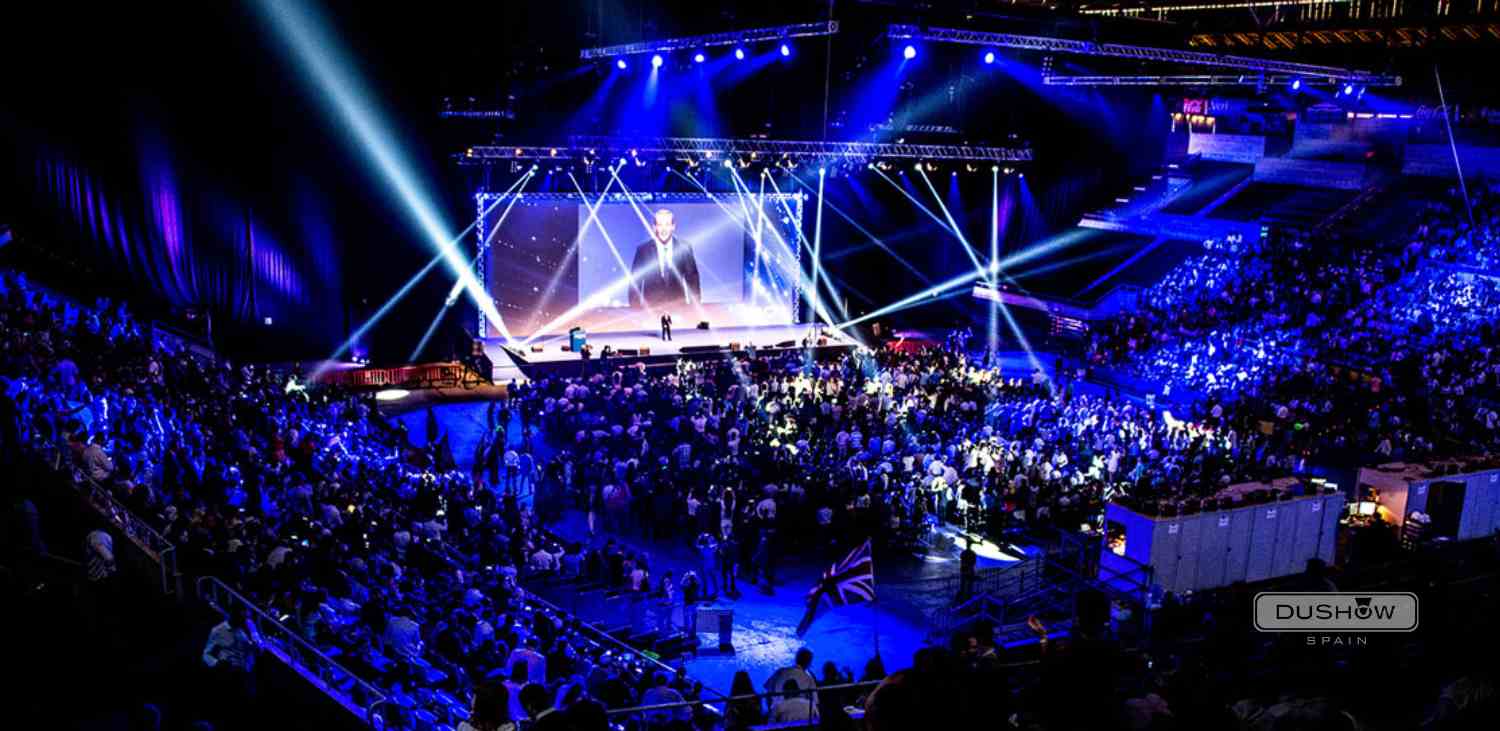Just How Event Production Works: A Comprehensive Look at the Process
Event production is a facility and organized process that calls for cautious planning and implementation. It starts with establishing clear objectives and understanding the target market. Each action, from budgeting to place choice, plays a crucial function in making certain success. As the process unravels, different components need to align seamlessly. The subtleties of this detailed procedure often go undetected. What are the vital stages that add to an unforgettable event?

The First Planning Phase
When beginning on event production, cautious preparation is essential to guarantee an effective result. The first preparation stage acts as the structure for all subsequent initiatives. During this stage, event producers have to define the event's function and objectives plainly. Recognizing the target market aids customize the experience and messaging, ensuring relevance and engagement.Producers should additionally think about the event layout, whether it be in-person, online, or crossbreed, as this will certainly affect various logistical elements. Picking an appropriate date and location is critical, as it affects availability and availability.Furthermore, constructing a trustworthy team is fundamental for separating obligations and enhancing interaction. Establishing a timeline with milestones guarantees all tasks are finished on time. This stage entails comprehensive study, including determining potential obstacles and developing approaches to reduce threats. Inevitably, a well-structured preliminary preparation phase establishes the tone for a successful event production trip.

Budgeting and Resource Allocation
In event production, reliable budgeting and resource allotment are essential for success - event production charlotte. Establishing economic specifications sets the structure for all subsequent choices, while resource circulation approaches ensure that every part of the event is effectively sustained. Together, these aspects aid keep control over expenses and maximize the use of readily available sources
Developing Financial Parameters
Developing monetary parameters is important to the success of any type of event production, as it establishes the foundation for effective budgeting and source allocation. This procedure begins with defining the total budget, which incorporates all elements of the event, including location expenses, event catering, and advertising and marketing. By recognizing readily available funds, event organizers can prioritize expenses and allocate resources as necessary. In enhancement, it is vital to carry out complete marketing research to anticipate prospective prices and determine funding resources, such as sponsorships or ticket sales. Establishing clear economic parameters likewise aids in risk management, permitting planners to establish aside backup funds for unexpected expenditures. Eventually, a distinct budget functions as a roadmap, leading the event production group towards accomplishing their objectives while keeping economic control.
Resource Circulation Approaches
Effective source distribution methods are crucial for optimizing the impact of an occasion while adhering to spending plan restraints. Effective event production requires a precise approach to budgeting and source allowance. Planners should focus on necessary elements such as location, event catering, and technology, making certain that funds are allocated to locations that enhance attendee experience. A detailed budget needs to detail expected expenditures and recognize areas for prospective expense financial savings, such as bargaining with suppliers or exploring sponsorship chances. Additionally, tracking expenses throughout the preparation process helps prevent overspending. By utilizing calculated source circulation, event manufacturers can provide a memorable experience while keeping monetary duty, eventually adding to the total success of the event.
Venue Option and Logistics
Selecting the appropriate location is vital to the success of any event, as it sets the stage for the general experience. Venue choice involves evaluating numerous variables, including capability, accessibility, and area. Planners need to consider the target audience and the nature of the event, making certain the location straightens with the event's goals.Logistics play a substantial role in this procedure, including plans for seats, audiovisual tools, and catering services. An appropriate place needs to promote smooth circulation for participants and staff, boosting engagement.Additionally, examining possible venues for services like car parking, washrooms, and fire escape is vital for safety and comfort. The timeline for protecting the place is also essential, as popular places might reserve swiftly - event production charlotte. Comprehensive preparation and prompt execution can inevitably add to a smooth event experience, making place option and logistics essential elements of effective event production.
Imaginative Idea Development
While the venue establishes the physical phase, imaginative principle growth forms the event's identification and story. This procedure begins with recognizing the event's purpose and target audience, enabling event manufacturers to develop an engaging motif that reverberates with participants. Conceptualizing sessions often consist of diverse perspectives, cultivating innovative concepts that line up with the event's goals.Once a motif is established, aesthetic aspects such as color schemes, signs, and design are made to improve the overall environment. Storytelling methods may additionally be integrated to produce an appealing trip for participants, assuring a remarkable experience. In addition, considerations relating to home entertainment, activities, and interactive elements are aligned with the selected idea, enhancing the motif throughout the event.Ultimately, reliable innovative concept growth assurances that every aspect of the event functions cohesively, leaving a lasting impact on attendees and fulfilling the event's goals. This foundational job prepares for subsequent preparation and implementation phases.
Collaborating With Vendors and Suppliers
Successful event production depends upon efficient cooperation with vendors and distributors. Picking reliable imp source partners, bargaining contracts efficiently, and making sure prompt deliveries are essential action in this procedure. Each of these factors contributes substantially to the general success and smooth execution of an occasion.
Selecting Reliable Partners
Exactly how can event coordinators ensure a smooth production experience? Choosing reputable partners is crucial in achieving this objective. Event coordinators should perform complete study to identify vendors and suppliers with a tested track document of excellence. This consists of examining recommendations, examining portfolios, and examining client comments. Organizers ought to focus on companions who show professionalism and trust, timely interaction, and a desire to work together. Building strong relationships fosters trust fund and allows quick analytic throughout the event. Additionally, it is valuable to pick neighborhood suppliers who recognize the location and local logistics. Ultimately, an effective event rests on the harmony between planners and their partners, guaranteeing that every element of production runs smoothly and efficiently.
Discussing Contracts Successfully
Effective negotiation of agreements is an essential action in the collaboration in between event planners and their suppliers and vendors. This process includes clear communication of assumptions, deliverables, and timelines. Planners need to conduct thorough research on market rates and sector requirements to develop a standard for settlements. It is necessary to produce a collaborative ambience, motivating open discussion about terms, prices, and prospective contingencies. Planners must likewise prioritize comprehending the supplier's capacities and limitations to align their demands effectively. Versatility can cause mutually beneficial contracts, promoting long-term partnerships. Crafting well-defined agreements that include certain performance metrics can aid guarantee liability, inevitably causing successful event execution and fulfillment for all parties entailed.
Making Certain Prompt Shipments
Timely shipments are important for the smooth implementation of any kind of event, needing persistent cooperation between coordinators and their suppliers and providers. Efficient communication is vital, as it aids develop clear this post assumptions pertaining to delivery schedules, amounts, and certain demands. Coordinators frequently create comprehensive timelines to describe important landmarks, making sure all parties stay aligned throughout the procedure. Routine check-ins with suppliers can help identify potential hold-ups early, enabling aggressive services. In addition, constructing solid partnerships with trustworthy distributors fosters trust and accountability, which can lead to far better service and prioritization. By prioritizing these joint initiatives, planners can lessen disruptions, consequently improving the overall effectiveness of event production and making sure that all necessary materials and services get here as intended.
Marketing and Promotion Techniques
While arranging an event, the success of advertising and promotion techniques can significantly affect presence and interaction. Efficient techniques frequently include a mix of electronic marketing, conventional advertising, and grassroots outreach. Using social networks platforms permits real-time interaction and targeted advertising and marketing, reaching particular demographics successfully. Email marketing campaigns can better involve potential participants with customized material and reminders.Collaborations with influencers or industry leaders can likewise enhance integrity and broaden reach. Developing engaging web content, such as video clips or blog sites, helps to generate buzz and receive passion leading up to the event. Furthermore, leveraging early-bird discounts and special advantages can incentivize ticket purchases.Promoting through conventional networks, such as posters or regional media, stays appropriate, particularly in community-focused occasions. A complete strategy that incorporates numerous techniques warranties optimum exposure and involvement, inevitably adding to the event's success and the development of an unforgettable experience for participants.
On-Site Execution and Administration
On-site implementation and monitoring are necessary elements that identify the general success of an event. Efficient coordination throughout the event guarantees that all elements straighten with the intended program. Event supervisors manage logistics, consisting of supplier control, equipment configuration, and guest services. Checking timelines and dealing with any unanticipated issues are basic for preserving a seamless experience.The team plays a significant duty, as trained employees are in charge of different tasks such as enrollment, information dissemination, and technological look at this now support. Communication amongst team members is critical; it fosters a collective environment and enables quick resolution of challenges.Additionally, security protocols must be followed, securing the health of all attendees. Post-event examinations are additionally part of on-site monitoring, giving understandings for future renovations. By focusing on these facets, event manufacturers can create unforgettable experiences that meet or go beyond participant assumptions while accomplishing the event's goals.
Often Asked Concerns
How Do I Select the Right Event Style?
Selecting the ideal event style involves considering the target market, event function, and place. Investigating current patterns and collecting input from stakeholders can likewise motivate innovative concepts that resonate and develop a memorable experience.

What Prevail Errors in Event Production?
Common errors in event production typically consist of poor planning, poor interaction amongst group participants, budget mismanagement, neglecting to consider the target market's demands, and failing to perform an extensive post-event analysis for future enhancements.
Exactly How Can I Gauge Event Success?
To gauge event success, one can analyze guest contentment, involvement degrees, budget plan adherence, and post-event comments. Secret efficiency indications, such as ticket sales and social networks interactions, likewise give valuable understandings into overall efficiency.
What Should I Do if It Moistens the Event Day?
In the event of rainfall on the day, the coordinator must carry out backup plans, such as protecting tents or moving activities inside your home. Interaction with guests about modifications is necessary to guarantee a smooth experience despite weather difficulties.
Exactly How Can I Make Certain Guest Involvement During the Event?
